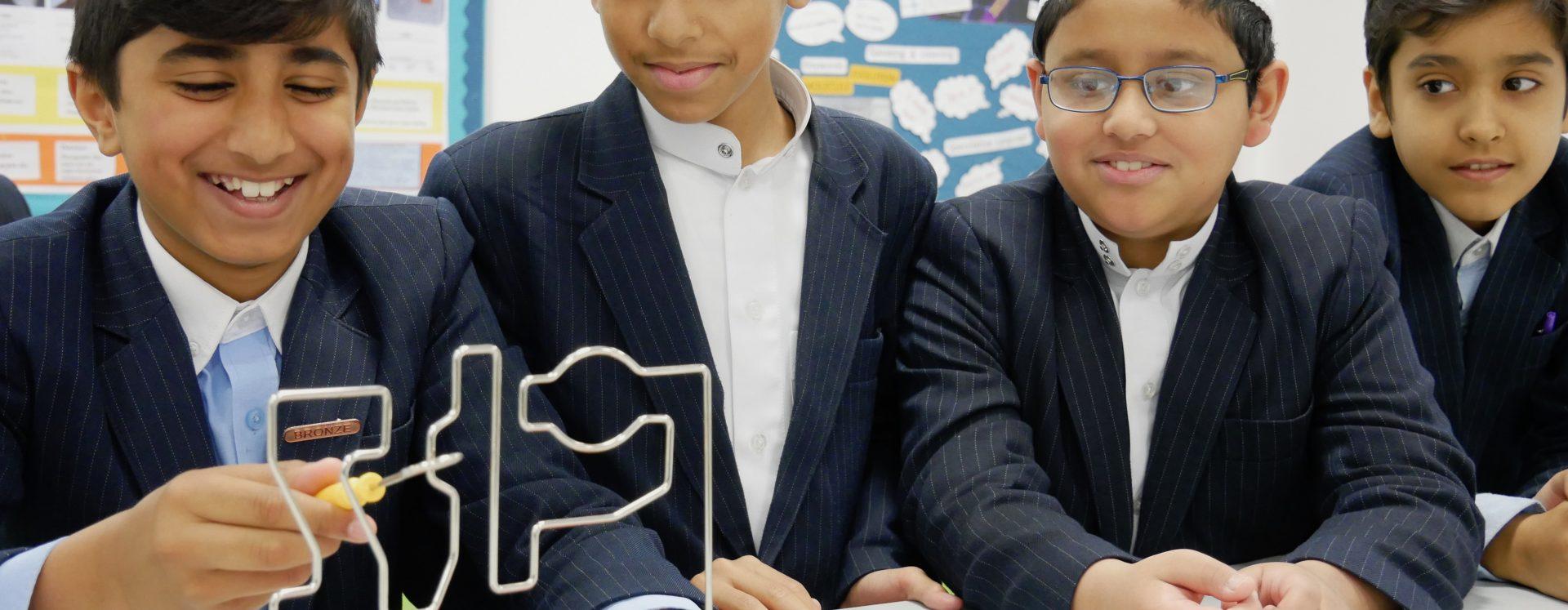Religious Education
Why study Religious Education?
In religious education (RE), pupils enter into a rich discourse about the religious and non-religious traditions that have shaped Great Britain and the world. RE enables pupils to take their place within a diverse multi-religious and multi-secular society.
It affords pupils both the opportunity to see the religion and non-religion in the world, and the opportunity to make sense of their own place in that world. The evolution of society’s religious and non-religious landscape highlights that it is all the more important for pupils to build up accurate knowledge of the complexity and diversity of global religion and non-religion. It supports spiritual, moral, social and cultural development of pupils. It considers pupils’ recognition of different people’s values, feelings, faith and ways of living and contributes to personal development. Religious education plays a key role in promoting social cohesion and the virtues of respect and empathy, which are important in our diverse society.
There are three guiding elements which are brought to life in the RE curriculum:
Educational excellence: RE teachers ensure a clear connection between the ‘ways of knowing’ that pupils learn, the ‘personal knowledge’ that pupils develop through the curriculum and the substantive content and concepts on which both depend
Character development: RE affords pupils both the opportunity to see the religion and non-religion in the world, and the opportunity to make sense of their own place in that world
Service to communities: Pupils build up accurate knowledge about the complexity and diversity of global religion and non-religion. This provides pupils with many of the ingredients for cultural and civic competencies
How will I study Religious Education?
Pupils will learn:
- about the experiences of faith practitioners and people of no faith (substantive knowledge)
- knowledge about religion through participant observation and analysis of text (ways of knowing)
- how to recognise their own assumptions including through the exploration of academic conversation in areas of theology, philosophy, and human and social sciences (personal knowledge and ways of knowing)
- how to apply previously learned generalisations about religion that can be ‘tested’ through an encounter with ‘lived’ faith practitioners (using the internal dynamics and internal plurality of religious traditions to illustrate that religious traditions are not simply one thing)
What will I study at Key Stage 3?
In year 7, pupils will know and understand the origin and sources of religious faith, ways of expression for religious believers and the link to events from the past.
Topics covered in year 7:
- Says Who? Sources of Authority for Religious Believers (God, Religious Leaders and Holy Books)
- How do Religious Believers Show Commitment to Their Faith? (Identity, Worship and Rituals)
In year 8, pupils will know and understand responses to ‘Big Questions’ through the exploration of theological, philosophical and sociological viewpoints.
Topics covered in year 8:
- How do Religious Believers Remember the Past? (Festivals and Pilgrimage)
- Does it Make Sense to Believe in God?
- War: What is it Good For?
- Why Do We Suffer?
In year 9, pupils will know and understand responses to ‘Big Questions’ through the exploration of theological, philosophical and sociological viewpoints
Topics covered in year 9:
- Whose World is it Anyway?
- Where Do We Come From?
- Where Are We Going?
- Is it Ever Right to Do Wrong?
- Religious Denominations
What will I study at Key Stage 4?
In year 10 and 11, pupils will know and understand key religious beliefs and teachings in Islam and Christianity. Pupils will know and understand how Muslims and Christians practice their faith. Pupils will know and understand the plurality of belief and practice within these faith groups.
Pupils will know and understand responses to contemporary issues through the exploration of theological, philosophical and sociological viewpoints.
Topics and themes covered in years 10 and 11:
- Islam: Beliefs & Teachings
- Islam: Practices
- Christianity: Beliefs and Teachings
- Christianity: Practices
- Theme B: Religion and life
- Theme A: Relationships and Family
- Theme E: Crime and punishment
- Theme D: Peace and conflict
Assessment
Internal assessments take place task place at regular intervals throughout both KS3 and KS4. Broadly, there are two types of assessment; fluency composite task and a composite test.
Composite fluency tasks are completed at the end of a topic and are used to check whether students are reaching curriculum related expectations.
Composite tests are used to assess the cumulative coverage of the curriculum and check whether learning is sticking over time and if students are reaching curriculum related expectations.
External Examinations
Examination Board: AQA
| Paper 1A: The Study of Religions: Beliefs, Teachings and Practices | |
| Overview | Focus |
|
|
| Paper 2A: Thematic Studies | |
| Overview | Focus |
|
Pupils must answer a compulsory five-part question on four separate religious, philosophical and ethical studies themes:
|
Enrichment
The department offers subject-specific enrichment clubs and organises a range of educational visits throughout the year, including a local faith trail. Pupils are able to take part in school-wide competitions, as well as representing the school in local and national events designed to increase their engagement and enhance their subject knowledge.
Careers
The study of Religious Education and Philosophy can lead to careers ranging from charity fundraiser, mediator, and youth worker to equality, diversion and inclusion officer, chaplain and editorial assistant.
Useful resources and revision support
https://revisionworld.com/gcse-revision/rs-religious-studies
http://www.rsrevision.com/GCSE/index.htm
http://www.bbc.co.uk/education/subjects/zb48q6f
http://www.aqa.org.uk/subjects/religious-studies/gcse/religious-studies-a-4050
https://www.senecalearning.com/
https://studywise.co.uk/gcse-revision/religious-studies/
top
